Neerja Chowdhury
Arvind Kejriwal is damaging the Congress and will cut into the BJP's opposition space wherever he gathers strength, says Neerja Chowdhury
Through his exposes, be it on Sonia Gandhi's son-in-law Robert Vadra, Law Minister Salman Khurshid or Bharatiya Janata Party chief Nitin Gadkari, Arvind Kejriwal is slowly delineating his political strategy.
Through his much-hyped press conference on Gadkari, which disclosed what had already been mostly revealed by India Against Corruption activist Anjali Damania, Kejriwal wanted to come across as being even-handed, demonstrating that he could take on a BJP leader just as he had targetted Congress leaders, who have described him as the 'B' team of the BJP.
He even went to the extent of tarring many other politicians -- he mentioned many by name, such as Union Agriculture Minister Sharad Pawar, Khurshid, Gadkari, former Uttar Pradesh chief minister Mayawati, and those in the Dravida Munetra Kazhagam, All India Anna Dravida Munetra Kazhagam, saying they were all of a kind -- with the same brush, to show he was not against any party.
Kejriwal has already indicated that Delhi, where he has the highest visibility, will be his karmabhoomi in the state elections due in 2013.
He tried to throw his net wider than the middle class professionals who have been coming to Ramlila grounds and to Jantar Mantar, when he went to an unauthorised colony in Delhi and burnt electricity bills or went to the home of a daily wage-earner to climb a 16-foot ladder -- a visual that was tailormade for TV cameras and would stick in people's minds -- to reconnect the electricity which had been severed because of the non-payment of a supposedly inflated bill.
...
Kejjriwal has become a household word in Haryana
Image: Robert VadraThe hike in power tariff has naturally agitated large sections of people. It is also evident that Kejriwal plans to focus on Haryana, which happens to be his home state. He comes from Hisar, where he had campaigned against the Congress last year in the by-poll there.
After his revelations against Vadra and the DLF, and after the transfer of Indian Administrative Service officer Ashok Khemka who had ordered a probe into Vadra's land deals, Kejriwal has become a household word in Haryana -- and beyond -- in one swift stroke.
When he broke off with Anna Hazare, and the latter even went to the extent of publicly telling him not to use his name or photographs in his political campaign, many had dismissed the Kejriwal party.
But within three days of announcing his political party, which is yet to acquire a name or a manifesto, he decided to challenge the top of the political establishment when he exposed the land deals of Vadra.
Overnight, people began to look at him with new eyes. For, though the information was available in the public domain for a year and a half and the Economic Times had brought out an article on Vadra's links with the DLF, it had been pursued neither by the media nor by the main opposition BJP, or for that matter by any other party.
...
Kejriwal and team intend to take up the cause of small farmers
Image: Former deputy chief minister of Maharashtra Ajit PawarThrough their exposes about the Vadra-DLF nexus, and about Gadkari's acquisition of 100 acres of land in Vidarbha through his proximity to former Maharashtra deputy chief minister Ajit Pawar, land that farmers claim should have been returned to them, Kejriwal and his team have sent the message that they intend to take up the cause of the small farmers, be it in Haryana or Maharashtra, and add to their middle class urban following.
Obviously, to create a new political party in a country as large and diverse as India is no easy task. Someone as towering as Jayaprakash Narayan -- Jawaharlal Nehru had offered him the number two position in his government after independence, given his role in the freedom movement -- had shied away from it in 1977.
Instead, he chose to bring together all the opposition forces to take on the Congress after the Emergency it had imposed.
Former Prime Minister VP Singh did likewise in 1989, as he waged a battle against Rajiv Gandhi around the issue of corruption, though he used to refer to his 'long term' versus 'short term' dilemma, between the need to create a new political instrumentality and the imperative of ousting the Congress.
...
Kejriwal is asking questions that needed to be asked
Image: Law Minister Salman KhurshidThough Kejriwal is demonstrating political savvy, using the media to his advantage -- mounting events that the media cannot ignore, revealing information in bits by way of instalments, like a serial and not a film -- he must know that he does not have the cadre or the wherewithal to mobilise people and create a new party which can be a factor, and do so in just over a year, that is if general elections are held on schedule.
He may therefore try and retain his relevance by acquiring the image of a 'giant-killer' and may do so by taking on some heavyweights in their fiefdoms, whether it is someone like Khurshid in Farrukhabad or Gadkari, who is expected to contest the Lok Sabha poll from Nagpur.
By declaring that he would be visiting Farrukhabad, Kejriwal has already decided to take the battle against Khurshid into his constituency. Khurshid, who put up a spirited defence at his press conference to counter charges against the trust he heads, did not help his case when he talked about Kejriwal coming to Farrukhabad but not being able to return.
Kejriwal is asking questions that needed to be asked. He may also be creating an atmosphere in which a Khemka orders an inquiry into Vadra's land deals and risks another transfer, and a former Cabinet Secretary M Chandra Shekhar discloses to the Joint Parliamentary Committee on the 2G scam that he had recommended to the prime minister an entry fees of Rs 35,000 crore for spectrum allocation but found no response from him.
...
Kejriwal is damaging the Congress
Image: Gujarat Chief Minister Narendra ModiAt the political level, at least as of now, Kejriwal is damaging the Congress and will cut into the opposition space of the BJP, wherever he gathers strength.
A weakening of national parties may lead to a more fractured mandate next time round, throwing up a weaker government, more vulnerable to domestic and foreign pressures.
Given the present mood against high level corruption and rising prices and a weak leadership unable to get a grip over the situation, could the Kejriwal phenomenon create a fertile ground which helps someone like Gujarat Chief Minister Narendra Modi come on the national stage, with his tough leader and deliverer image, with no charges of corruption, no family and known for demagoguery?
Undoubtedly it would also polarise the polity on the other side. A manthan (churning) has been initiated, but only time will tell whether it yields 'nectar' or 'poison'.

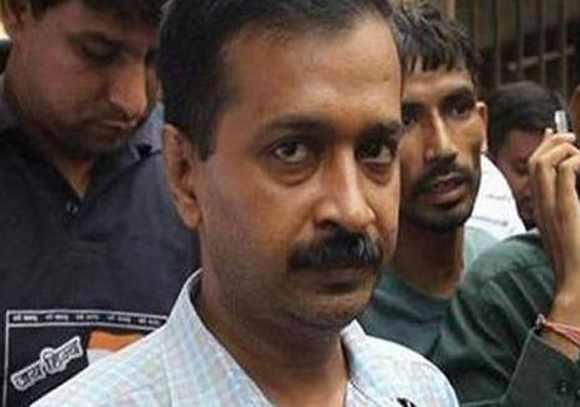
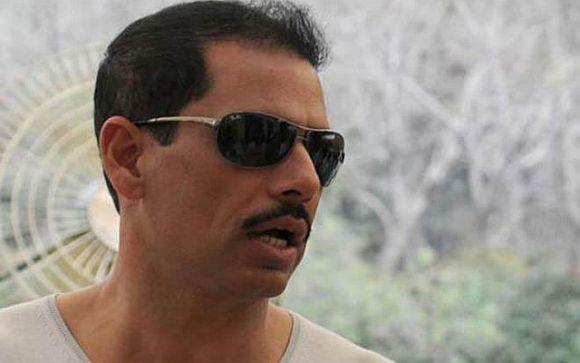
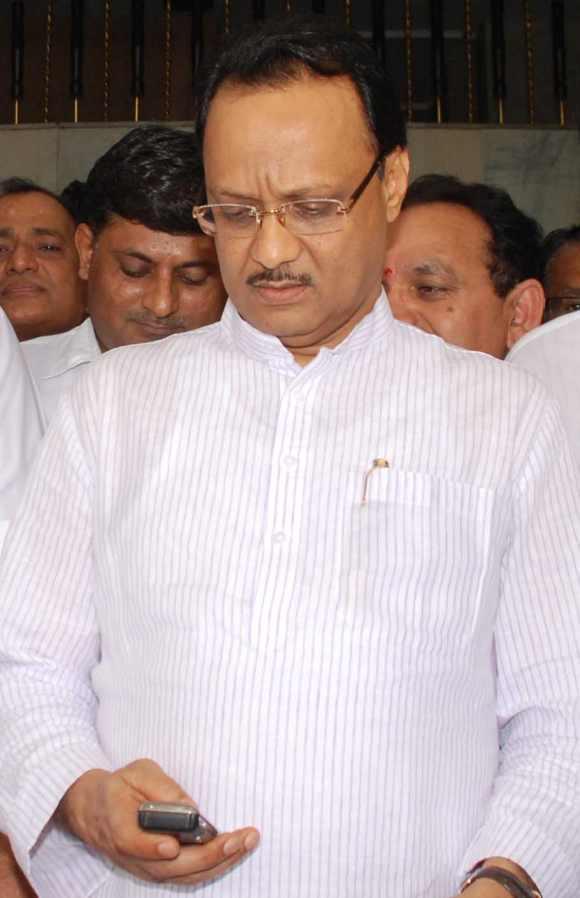
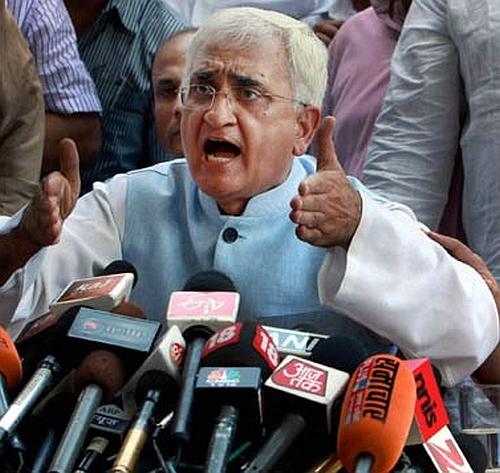
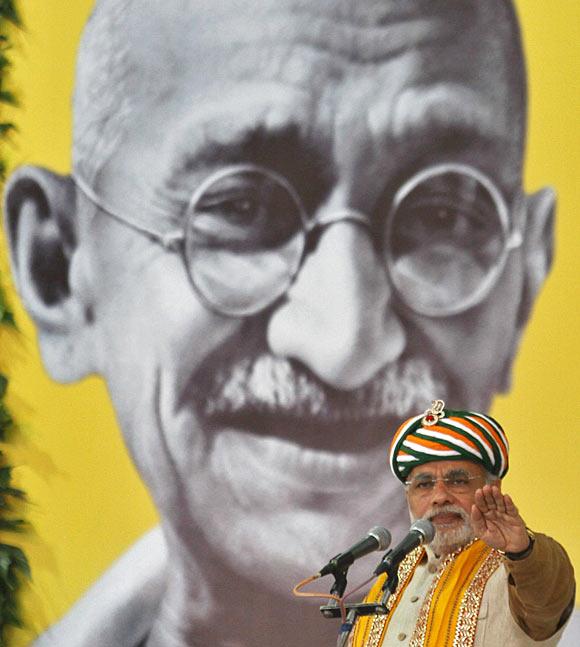
article